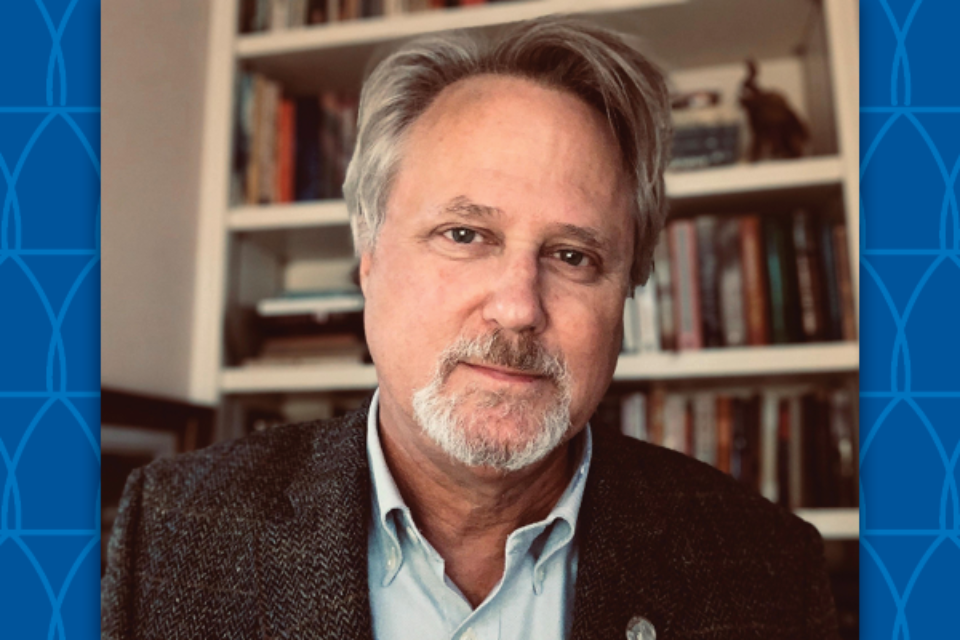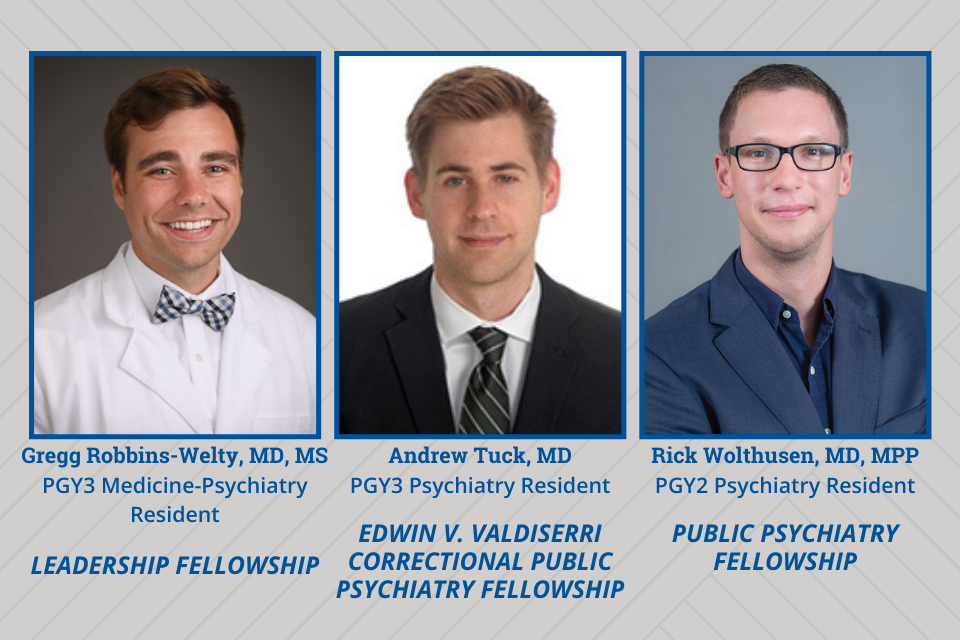Check out our news archive below to learn more about what’s happening in Duke Psychiatry & Behavioral Sciences!
Congratulations to the 2022 LEADER Alumni
Congratulations to the 2022 graduates of the Leadership Development for Researchers (LEADER) Program, designed for junior faculty who are leading a research group and driving their own research agenda. Department of Psychiatry & Behavioral Sciences participants include Dan Blalock, PhD, Elena Tenenbaum, PhD, Sheri Towe, PhD, and Yun Wang, PhD.
Creating a Sense of Community for LGBTQ Students
DukeMed Pride offers LGBTQ students in the School of Medicine a space to find mentors, networking, and a sense of community. Duke Psychiatry's Dane Whicker, PhD, is the faculty advisor for the group.
A Champion for Affirming, Culturally Responsive Health Care
Understanding intersecting cultural identities — and providing care that respects and affirms those identities — is at the heart of Tyson Pankey’s work as a clinician, educator, and researcher. Pankey, who joined the Psychiatry & Behavioral Sciences faculty in September 2021, wants to help flip the script on how health care providers talk to and care for people in the LGBTQ+ community.
Six Long-Time Faculty Members Retire from Department
Six of our long-time faculty members are retiring from the Department of Psychiatry & Behavioral Sciences this year. We are incredibly thankful for their service at Duke and wish them all the very best in their next chapter!
Duke Psychiatry Honors Professors and Residents with 2022 Awards
Congratulations to our trainees and faculty members who received year-end awards at our recent Graduate Medical Education graduation ceremony, including Outstanding Resident Educator, Outstanding Resident Clinician, Outstanding Resident Researcher, and outstanding teaching and mentoring awards for faculty members.
Medical Sociologist Jeffrey Swanson on the Complex Puzzle of Gun Violence
Jeffrey Swanson, PhD, can answer a lot of questions about gun violence. But as public shootings with multiple casualties have seemed to become an epidemic, Swanson has juggled a heavy schedule of media interviews in which reporters repeatedly ask a question he can't answer: why? In this article, he discusses some of the complexities of the issue.
COVID Deaths Left Orphans: To Their Loss, Add Lifelong Health Risks
Avion Simon and his siblings are among the more than 200,000 children and teens who have lost a parent or caregiver to COVID. Experts including Duke Psychiatry's Dr. Ernestine Briggs-King say—and research has demonstrated—that the trauma of losing a parent can have lifelong effects on our mental as well as physical health. This brief Scientific American documentary explores Avion's experience as an orphan, the effects of adverse childhood experiences and what can be done to minimize the long-term consequences of traumas like this one
How Fast Are You Aging?
Five decades ago, Duke psychologists Terrie Moffitt, PhD, and Avshalom Caspi, PhD, began working with a long-term study of 1,000 people in New Zealand to get a better perspective on how childhood factors may have led to adolescent behaviors, such as risk-taking. But after following all the children born in Dunedin, New Zealand, in 1972 and ‘73 for several decades, the married researchers’ questions began to shift: How were the childhood differences reflected in middle age health, and how is it, as the group enters its 50s, that they all seem to be aging at different rates?
Dr. Joe Talley: A 45-Year Career of Wise Counsel
Throughout his career at the Duke student counseling center, Joe Talley, PhD—also a professor in Psychiatry & Behavioral Sciences—has tried to help students find their own sustainable solutions. He'll retire in June after 45 years of service.
Three Residents Awarded American Psychiatric Association Fellowships
Three Duke Psychiatry & Behavioral Sciences residents were awarded American Psychiatric Association (APA) and American Psychiatric Association Foundation (APAF) fellowships.









